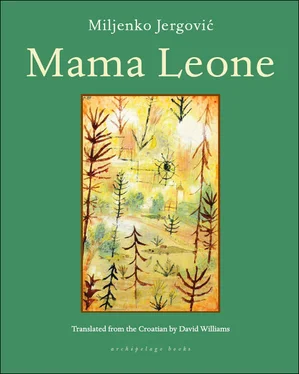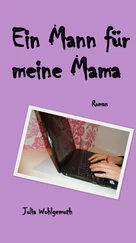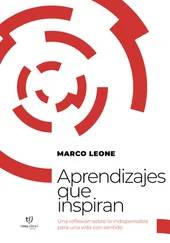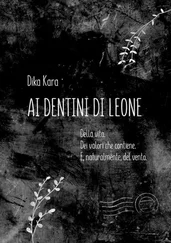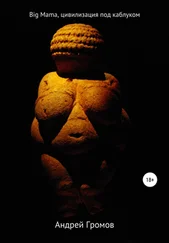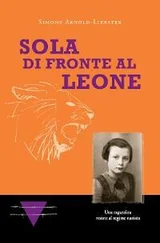I don’t pay Grandpa’s dead sisters any mind because I can’t, because I don’t know anything about them, just that they’re dead and that they died very young. That’s the only thing anyone ever says about them, and that’s not enough for me to love them and blame the Old Devil for their dying young. He’s the main character and the only character in a story that’s been going on for a hundred years and continues to this day even though he’s long dead, and in this story Blacksmith Joža the Slovenian is like Flash Gordon: Everyone’s afraid of him, but no one can hurt him. This great-grandpa of mine is the strongest and the biggest, so strong and so big that the winter of 1943 had to come along to do him in so he could make a brief exit from the story, but he’s sure to make a comeback one day. I know this because these kind of stories can’t end before I make my entrance, doesn’t matter if I’m five, seven, or eleven years old, one day when I dream of the Old Devil I’ll offer him my hand and say you were terrifying, but I’m not scared of you, and everyone was scared of you except me . I don’t know what he’ll say to that, but I have the feeling he might burp in my face. My great-grandpa, Blacksmith Joža the Slovenian, that’s him for you.
We learned proverbs at school and on the blackboard the teacher wrote: “Everyone forges his own good fortune.” We were supposed to write an explanation of what it meant in our notebooks, so I wrote a story about how my great-grandpa forged his own good fortune and about how forgers of their own good fortune were usually forgers of others’ misfortune because they find their good fortune at the bottom of a bottle of rakia. The teacher called Mom into school for another visit, but Mom didn’t tell me anything, not why she was called in or what the teacher told her, but I saw the red in her eyes and that she was all upset and desperate because of me. The next day the school psychologist turned up in class, stood next to the teacher’s desk, hands behind his back, and the teacher said this is comrade Mutevelić, he’s a psychologist and he’s going to sit in on our class today and see how you’re doing , and after five minutes I could see his eyes were all on me, staring at my head and glancing away when I caught him, and the teacher kept asking me stuff, all smiley and kind like she never was, like I was really sick or something, all kinds of weird questions about things we hadn’t even studied and I’m sure aren’t even in the teacher’s book, like are people good or evil , or who’s smarter, the raven or the fox , or is Videk happy they sewed him a shirt . This Videk is a kid in a lame story, he’s supposed to have walked around naked until some nice folks sewed him a shirt. I replied that good people are good, and that evil people are evil, that the raven is smart because he found the cheese, and that the fox is smarter because she took it from him, but that maybe the fox was dumb because she couldn’t find the cheese herself and that the raven was stupid because he let himself get played by the fox, but that I had no opinion about Videk because I just couldn’t imagine a kid walking around naked and someone sewing him a shirt. When I said the bit about “having no opinion,” I shot comrade Mutevelić a look because I knew he’d be shocked. I know exactly which words are going to shock people as soon as they come out of my mouth, and I know why they’re shocked. When I say “in my opinion,” or when I say “taken in general,” or when I say “characteristically,” everyone acts like I’ve put a suit, tie, and hat on, all fancy. That’s how it is now: Comrade Mutevelić raises an eyebrow in surprise, takes his pad from his pocket, and scribbles something down.
The boy is very clever for his age and has a rich vocabulary, but his emotions are completely childlike and along with his undoubted intelligence they’re an explosive little cocktail . That’s what comrade Mutevelić told Mom, and amazingly that’s what she told me, word for word, probably because she’d just read something in her book You and Your Child about the value of periodically shocking me with psychoanalytic findings or what grown-ups think of me. I’m not that smart, it’s just they expect me to be dumb. . Who expects that of you?. . The teacher and comrade Mutevelić. They asked me whether Videk is happy someone sewed him a shirt. You only ask that kind of thing when you want to make someone look like a retard. . Why did you write that everyone forges their own good fortune and others’ misfortune?. . I didn’t write that, I wrote that Great-grandpa was a blacksmith and everyone around him misfortunate. That’s what I wrote, I didn’t write anything about anyone else because I didn’t have time and because I don’t know anything about any other blacksmiths. . Do you really have to write down what you hear at home? You could make something up. . You mean, I could lie about something?. . Not lie, make up. . And what in your opinion is the difference between making up and lying?. . Liars lie and writers make things up. . So who writes and talks about stuff that really happened then?. . For chrissakes, I don’t know, historians probably, but that’s not the point right now, try outdoing yourself and biting your tongue every now and then .
That’s how my first encounter with a psychologist played out: A very unpleasant experience and one I’d very much like to avoid in the future, although my reputation in class skyrocketed afterward because everyone figured that comrade Mutevelić was there because of me and figured it was because I was either really crazy or really smart, but no one was able to solve that particular dilemma, apart from Šandor, the class bonehead, who was repeating the grade and gave me a hiding every day after Mutevelić’s visit, presumably having decided that crazy or smart, I deserved a thrashing either way.
Given that the Old Devil and the family fear of rakia and alcoholism was at the root of everything, I decided to carefully monitor my family’s relationship to alcohol, make a few notes from time to time, it being obvious that inebriety was key and that I had to act with caution in the face of their fears. As soon as Grandma or Grandpa got scared about something, I’d get bawled out for not sharing their fears. Then I’d have to be scared of all the things I wasn’t scared of, and given I couldn’t stop being scared of the stuff I really was scared of myself, I had to carry around my own fears and their fears besides, which, I’m sure you’ll agree, is a rather unpleasant state of affairs when you’re five, seven, or however many years old.
I noticed that our pantry was full of alcohol: homemade slivovitz and grappa; dozens of bottles of brandy and cognac; two liters of whiskey; vodka, gin; bottles of white, red, and rosé wine; menthol and chocolate liqueurs; Macedonian mastic and Greek metaxa. . The bottles were neatly arranged and unopened, apart from the grappa and the whiskey, at the ready for when guests came. The bottles belonged to long-forgotten wakes and birthday parties, or were New Year’s presents from the time before I was born. When someone dies, the neighborhood comes to say how sorry they are and people bring bottles of alcohol, which then get stored in the pantry forever. Everyone knows we’re pretty much a nondrinking household, but tradition is tradition, and people cling to funeral rites most faithfully of all because even if they make no sense they’re still not for messing with because death is a time when the living have to be good to each other, and you’re best when you do something of no use to anyone, which makes it all the more moving.
The menthol and chocolate liqueurs were presents for Mom when she was really young and before I was even born. On one of the bottles there was a tempera heart and arrow with Mom’s name and the name of some guy in it. This is a happy memory for her, which I don’t get at all. How can a bottle of liqueur be a happy memory when she’s terrified of alcohol? Do you think that heart is the happy memory? Nice: a memory written on a bottle full of fear.
Читать дальше
